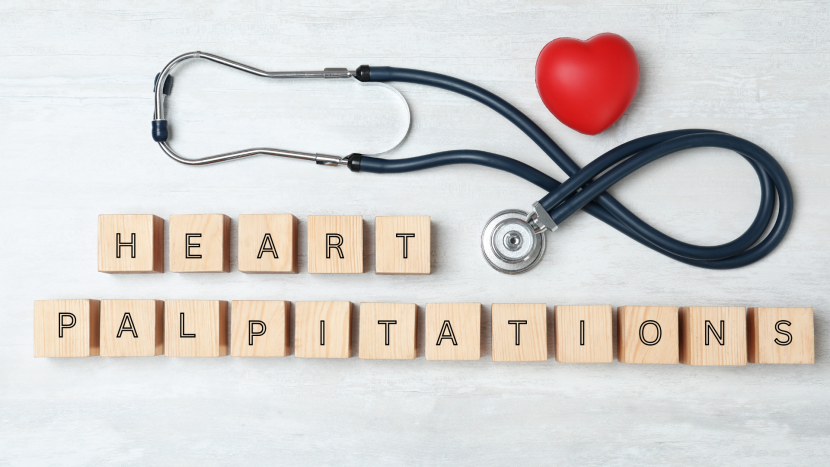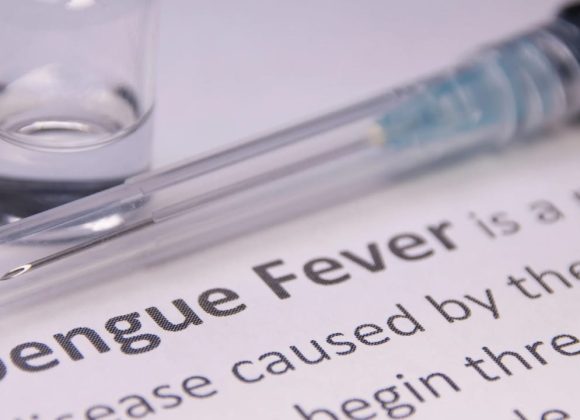Have you ever felt your heart skip a beat, flutter unexpectedly, or start racing for no apparent reason? That uncomfortable sensation might be a heart palpitation—a common and often harmless condition, but sometimes a sign of something more serious.
In this blog, we’ll dive deep into what heart palpitations are, why they happen, how to recognize the symptoms, and when it’s time to see a doctor.
What Are Heart Palpitations?

Heart palpitations are sensations that feel like your heart is:
- Fluttering
- Pounding
- Skipping beats
- Racing
They can be felt in the chest, throat, or neck and may last for just a few seconds or longer. While many palpitations are benign and triggered by stress or stimulants, they can also indicate underlying heart issues.
Symptoms of Heart Palpitations
You may feel:
- A fast or irregular heartbeat
- Your heart “flip-flopping”
- A pause followed by a strong beat
- Pounding sensations in the chest or neck
- Dizziness or lightheadedness
- Shortness of breath
- Anxiety or a sense of panic
Not all palpitations feel the same. Some may notice only mild flutters, while others experience forceful thumps that make concentrating difficult.
What Causes Heart Palpitations?
Palpitations can be caused by everyday triggers or more serious medical conditions.
Common Causes:
Heart palpitations are often triggered by everyday habits or temporary physiological changes. These include emotional stress or anxiety, consumption of caffeine, energy drinks, or nicotine, and lack of sleep. Other common factors are alcohol intake, recreational drug use, strenuous physical activity, and hormonal fluctuations, such as those that occur during menstruation, pregnancy, or menopause. Even simple issues like low blood sugar, dehydration, or a fever can lead to noticeable changes in your heart rhythm.
Medical Causes:
While many palpitations are harmless, some can be symptoms of underlying health issues. These include arrhythmias like atrial fibrillation, thyroid disorders (particularly hyperthyroidism), anemia, and low blood pressure. Imbalances in electrolytes, such as potassium or magnesium, can disrupt your heart’s electrical activity. Heart valve problems and the use of certain medications, like asthma inhalers, decongestants, or weight loss pills, can also trigger irregular heartbeats that should be medically evaluated.
How Are Palpitations Diagnosed?
If palpitations are frequent or concerning, your doctor may recommend tests such as:
- Electrocardiogram (ECG/EKG): Measures the heart’s electrical activity
- Holter monitor: A wearable device that records heartbeats for 24–48 hours
- Event recorder: Worn for longer periods to catch intermittent episodes
- Echocardiogram: Uses sound waves to create images of your heart
- Blood tests: Check for thyroid issues, anemia, and electrolyte levels
When Should You Seek Medical Help?
While occasional heart palpitations are often harmless, you should seek immediate medical attention if they are accompanied by chest pain, shortness of breath, dizziness or fainting, extreme fatigue, or a sudden and persistent racing heartbeat. These symptoms may indicate a more serious underlying heart condition. Additionally, if you have a family history of heart disease, are at an increased risk for stroke, or experience frequent or recurring palpitations, it’s essential to consult a healthcare provider for a thorough evaluation and appropriate management.
How to Manage and Prevent Heart Palpitations Naturally
Lifestyle Tips to Reduce Heart Palpitations Naturally
Making simple lifestyle changes can go a long way in minimizing heart palpitations. Start by reducing stress through calming practices like yoga, meditation, or deep breathing exercises, which help relax the nervous system and stabilize your heart rhythm. It’s also important to limit stimulants such as caffeine, alcohol, and nicotine, which are known to trigger palpitations in many individuals. Staying well-hydrated, maintaining healthy sleep habits, and engaging in regular physical activity—preferably under medical guidance—can all contribute to a healthier heart and fewer palpitations.

Nutritional Support for a Calmer Heart
Your diet plays a vital role in supporting heart health and preventing palpitations. Focus on consuming magnesium-rich foods such as leafy green vegetables, nuts, and seeds, as magnesium is essential for maintaining a steady heartbeat. Incorporating omega-3 fatty acids from sources like fatty fish, flaxseeds, or walnuts may also help support heart function and reduce inflammation. Additionally, it’s wise to avoid processed sugars and excessive salt, both of which can contribute to electrolyte imbalances and elevate your risk for palpitations.
Natural Remedies to Explore (With Medical Supervision)

Certain herbal and natural remedies have shown promise in managing heart palpitations, especially when used under a healthcare provider’s guidance. Ashwagandha is an adaptogenic herb that helps manage chronic stress and supports adrenal balance, while hawthorn has been traditionally used to strengthen the heart and improve blood flow. If you’re prone to electrolyte imbalances, consider electrolyte supplements—particularly potassium and magnesium—after confirming any deficiencies through testing.
Always consult your doctor before adding any supplements or herbs to your routine, especially if you have a pre-existing heart condition or are on medication.
Can Anxiety Be Mistaken for Heart Problems?
Absolutely. Anxiety is one of the top causes of palpitations. During a panic attack or anxious moment, your adrenaline levels spike, causing your heart to beat faster or irregularly. If you’ve ruled out heart disease, managing anxiety may significantly reduce your symptoms.
Final Thoughts
Most heart palpitations are not life-threatening, especially when linked to lifestyle factors. However, when combined with other symptoms—or if they become frequent—it’s always wise to listen to your body and consult your healthcare provider.
By understanding your triggers and staying proactive about your health, you can help ensure your heart stays strong and steady.




